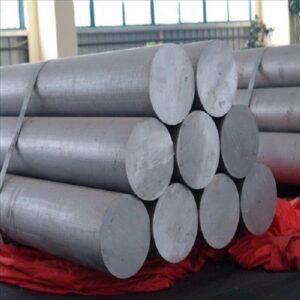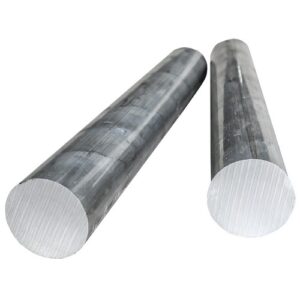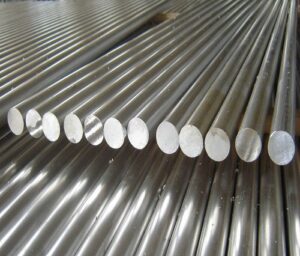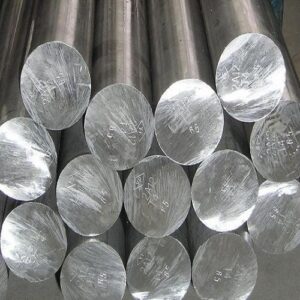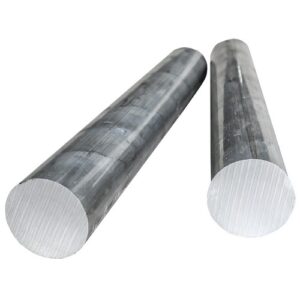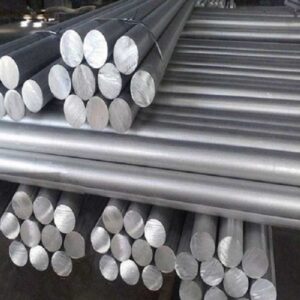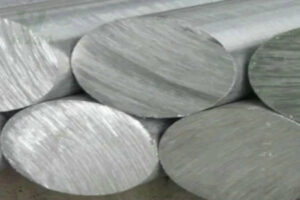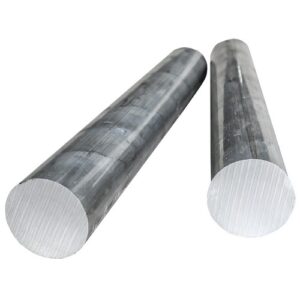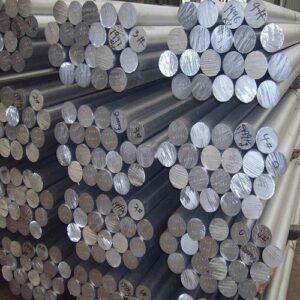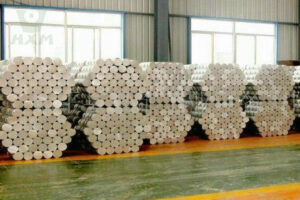4032 Aluminum Bar is a high-performance aluminum-silicon alloy that is widely used in industrial components in high-load and high-temperature environments due to its excellent strength, wear resistance and low thermal expansion coefficient. Our 4032 Aluminum Bar is particularly suitable for manufacturing high-performance pistons, engine components, and aerospace parts, providing excellent wear resistance and long-term stability. With excellent mechanical properties and outstanding corrosion resistance, the 4032 Aluminum Bar can meet all your needs in high-stress and high-temperature conditions.
Contact us for the latest 4032 Aluminum Bar Prices and learn how our products can provide the best solution for your project.
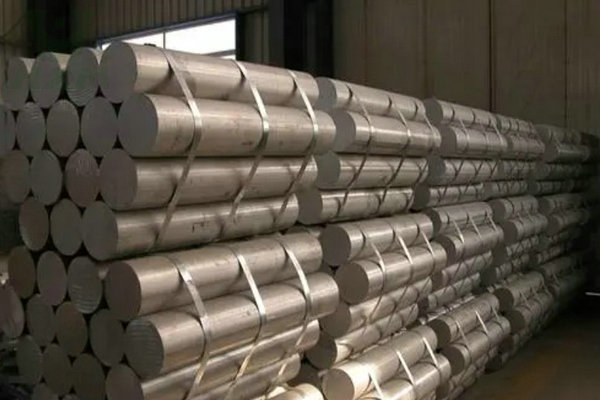
4032 Aluminum Bars Specifications
Standards: ASTM B221, B211, B565, B316 3003, DIN AlMnCu
Aluminum bar form: Aluminum round, hexagonal, flat, semi-circular, oval, rectangular black, and glossy finish
Aluminum round bar diameter: 0.1-600mm, etc.
Aluminum hexagonal bar: 0.1-600mm, etc.
Aluminum angle bar size: 0.5mm*40mm*40mm-20mm*400mm*400mm
Aluminum flat steel thickness: 0.1-600mm, etc.
Aluminum flat bar size: 1-2500mm, etc.
Aluminum round bar length: 1-12m, random, fixed, and cut length or according to customer requirements
4032 Aluminum Bars Data Sheet
Chemical Composition of 4032 Aluminum Bars
| Si | Mg | Cu | Ni | Fe | Mn | Cr | Others |
|---|---|---|---|---|---|---|---|
| 11.0% – 13.0% | 0.8% – 1.2% | 0.3% – 0.8% | 0.2% – 0.5% | ≤0.5% | ≤0.3% | ≤0.1% | ≤0.15% |
Mechanical Properties and Tempers of 4032 Aluminium Bars
| Property | T6 Temper | T4 Temper | T7 Temper |
|---|---|---|---|
| Tensile Strength | 320 – 460 MPa | 300 – 420 MPa | 310 – 450 MPa |
| Yield Strength | 250 – 350 MPa | 220 – 340 MPa | 240 – 360 MPa |
| Elongation | ≥6% | ≥8% | ≥7% |
| Hardness | 80 – 95 HB | 70 – 90 HB | 75 – 92 HB |
For high-quality 4032 aluminum bars and professional assistance, contact HXM, your reliable supplier of aluminum products.
Physical Properties:
Density: 2.8 g/cm³
Melting point: 570 – 630°C
Thermal expansion coefficient: 2.3 × 10⁻⁵ /°C
Thermal conductivity: 150 W/m·Kc
Different Tempers of 4032 Aluminum Bars
T6 Temper
- Description: Solution heat-treated and artificially aged. Provides the highest strength and hardness of the 4032 alloy.
- Applications: Used in components requiring maximum strength and hardness, such as high-performance pistons and aerospace parts.
T4 Temper
- Description: Solution heat-treated and naturally aged. Offers good mechanical properties and machinability.
- Applications: Suitable for components where moderate strength and better machinability are needed, including various industrial applications.
T7 Temper
- Description: Solution heat-treated and artificially aged to provide additional stability and improved resistance to corrosion and high-temperature exposure.
- Applications: Ideal for high-temperature applications requiring enhanced stability and corrosion resistance.
4032 Aluminum Bar Packages
The following is our company’s standard aluminum bar export packaging. If the customer has any packaging requirements, our company can meet them.
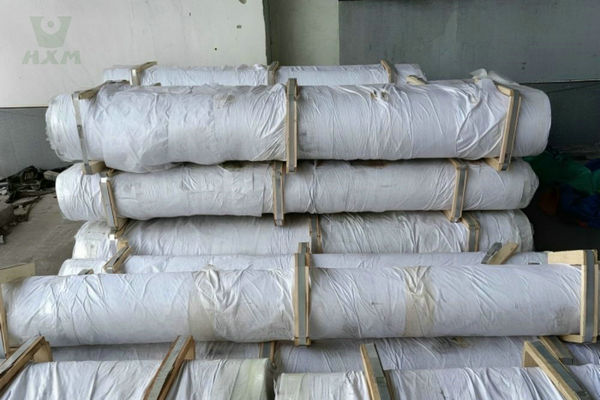
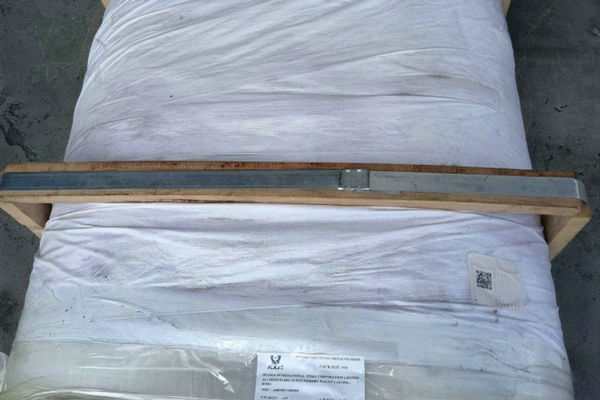
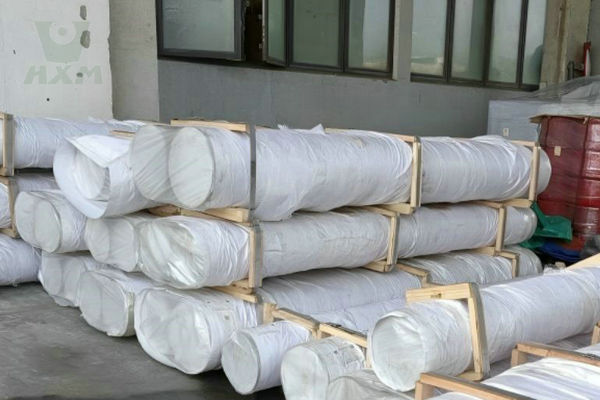
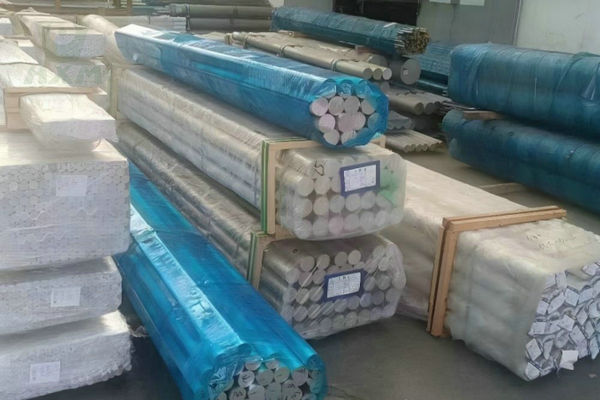
FAQ
What Is 4032 Aluminum Bar?
4032 aluminum bar is an aluminum-silicon alloy, which is widely used in high-temperature and high-load industrial fields due to its excellent wear resistance, high strength, low thermal expansion coefficient and good corrosion resistance. 4032 aluminum alloy contains alloy elements such as silicon, magnesium, nickel, and copper, which makes it have excellent mechanical properties and high wear resistance, especially suitable for occasions requiring high strength and wear resistance.
4000 Series Aluminum
4032 Aluminum Bar VS Other Aluminum Bar:
4032 vs. 6061 Aluminum Bar
Strength: 4032 offers slightly higher strength than 6061, particularly in high-temperature conditions, making it more suitable for applications like pistons or engine parts where heat resistance is important.
Wear Resistance: 4032 significantly outperforms 6061 in wear resistance, thanks to its high silicon content. This makes 4032 ideal for high-friction environments.
Thermal Expansion: 4032 has a lower thermal expansion coefficient than 6061, allowing it to maintain dimensional stability under heat, a crucial factor in automotive and aerospace components.
Corrosion Resistance: Both alloys offer good corrosion resistance, but 6061 is more versatile for general structural and marine applications.
Cost: 4032 is generally more expensive due to its specialized properties, while 6061 is more cost-effective for general engineering applications.
4032 vs. 7075 Aluminum Bar
Strength: 7075 aluminum bar is stronger than 4032 and is typically used in aerospace and other high-stress applications.
Wear Resistance: 4032 outperforms 7075 in wear resistance, as 7075 does not offer the same silicon content that gives 4032 its hardness and abrasion resistance.
Heat Resistance: 4032 excels in high-temperature environments, while 7075 is not well-suited for sustained heat exposure due to its higher thermal expansion and lower resistance to thermal stress.
Corrosion Resistance: 4032 has better corrosion resistance than 7075, particularly in environments exposed to high heat and moisture. 7075 is prone to stress corrosion cracking in certain conditions.
Cost: 7075 is more expensive than 4032 but is favored for high-strength applications. If wear resistance and thermal stability are more critical, 4032 is a better choice.
4032 vs. 2024 Aluminum Bar
Strength: Both 4032 and 2024 are high-strength alloys, but 2024 has slightly higher strength. However, 2024 is more prone to fatigue, while 4032 offers better durability in high-wear environments.
Wear Resistance: 4032 has superior wear resistance due to its silicon content, making it ideal for moving parts like pistons, whereas 2024 is more commonly used in aircraft structures where wear is less of a concern.
Heat Resistance: 4032 is better suited for high-temperature applications due to its low thermal expansion, while 2024 is more suited for low-temperature, high-strength applications.
Corrosion Resistance: 4032 has better corrosion resistance than 2024, which is more susceptible to oxidation and stress corrosion cracking.
Cost: Both alloys are expensive, but 2024 may be slightly less costly. For applications needing wear resistance and heat stability, 4032 offers better value.
4032 vs. 3003 Aluminum Bar
Strength: 4032 is significantly stronger than 3003, which is a softer, non-heat-treatable alloy used primarily for general-purpose applications like roofing and packaging.
Wear Resistance: 4032 has much better wear resistance, making it suitable for mechanical components, whereas 3003 is not designed for high-friction environments.
Heat Resistance: 4032 performs well under heat, while 3003 is not designed for high-temperature applications.
Corrosion Resistance: Both alloys offer good corrosion resistance, but 3003 is typically used for less demanding environments.
Cost: 3003 is much cheaper than 4032. However, 4032’s superior strength, wear resistance, and heat tolerance justify the higher cost for specific industrial applications.
4032 vs. 1100 Aluminum Bar
Strength: 4032 is far stronger than 1100, which is commercially pure aluminum and used in applications where strength is not a priority.
Wear Resistance: 4032’s wear resistance is much higher due to the presence of silicon, making it ideal for mechanical and automotive components. 1100 is not suitable for wear-prone environments.
Heat Resistance: 4032 handles heat exposure well, whereas 1100 has poor high-temperature stability.
Corrosion Resistance: Both alloys offer excellent corrosion resistance, but 1100 is more suited for chemical processing and electrical applications where corrosion resistance and conductivity are more important than strength.
Cost: 1100 is significantly cheaper than 4032 and is used in cost-sensitive applications like chemical equipment and electrical conductors. However, 4032 is a better choice for applications needing high wear and heat resistance.
How Can I Get A Sample Of 4032 Aluminum Bars?
Please contact us directly and send us the material, specification, quantity and delivery address of the samples you need.
Features of 4032 Aluminum Bars:
High Strength: The 4032 aluminum bar has extremely high tensile strength and hardness, suitable for applications that are subject to high stress.
Wear Resistance: The silicon content gives its surface good wear resistance, making it an ideal choice for mechanical parts.
Low Thermal Expansion Coefficient: 4032 aluminum bar has a low thermal expansion coefficient, so it has good dimensional stability in high-temperature environments.
Corrosion Resistance: The 4032 aluminum bar has excellent corrosion resistance in atmospheric and corrosive environments.
Machinability: It has good machinability and can be formed by various mechanical processing methods.
Application of 4032 Aluminum Bars:
Automotive Industry: widely used in manufacturing high-performance pistons, engine parts, etc.
Aerospace: used in manufacturing high-load mechanical parts, such as turbine blades and aviation structural parts.
Mechanical Equipment: used in high-precision mechanical parts, molds, etc. that require wear resistance and high strength.
Electronic Equipment: in the electronics field, used for parts with high heat dissipation and high stability requirements.
